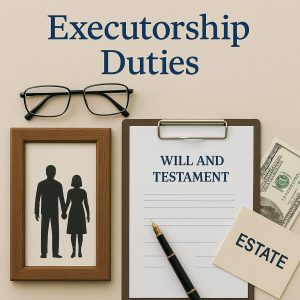The Executor’s Role Explained: Legal Insight into Probate and Death Duties
 For those who suffer bereavement in the family, the thought of winding up their loved one’s estate may seem like an overwhelming task. Anne-Marie Worth at Mogers Drewett LLP explains the process and how employing a probate specialist can go a long way to easing this burden.
For those who suffer bereavement in the family, the thought of winding up their loved one’s estate may seem like an overwhelming task. Anne-Marie Worth at Mogers Drewett LLP explains the process and how employing a probate specialist can go a long way to easing this burden.
Estates vary widely in terms of their nature and complexity, but it is rare that an estate is completely straightforward. Executors will usually be faced with a range of legal, financial and practical duties, which should not be taken lightly. Their responsibilities may include:
- Advising establishments of the death and obtaining valuations.
- Applying for a grant of probate
- Dealing with Inheritance Tax
- Settling income tax affairs
- Managing and/or selling a property, dealing with utilities/insurance and arranging clearance
- Administering shareholdings
- Realising assets and paying off debts
- Distribution of the estate
Other obligations of the role may involve preparing a deed of variation to alter the division under the will, tracing missing beneficiaries, setting up and administering will trusts and dealing with foreign aspects of the estate.
Generally, where the deceased held assets, the executors will need to apply for a grant of probate. The grant is their legal authority to administer the estate, collect in the assets and distribute the estate in accordance with the terms of the will. If there is no will, the person entitled to administer the estate is determined by the intestacy laws and known as the administrator. The administrator will obtain a grant of ‘letters of administration’.
It is worth noting that it may not be necessary to obtain a grant if there are joint assets which pass to the surviving owner. However, this should not be automatically presumed as there are different ways to hold assets jointly, which may affect how a share passes on death. There could be terms provided in the will, such as a specific gift or trust, dealing with a share of a joint asset. This may in turn trigger a need for probate and an application to the Land Registry if it relates to property.
Prior to obtaining probate, the executors must undertake a full investigation of the estate, obtain asset valuations and deal with any Inheritance Tax formalities. In order to work out the Inheritance Tax position it may not just be the assets held at death that are relevant; they may also need to investigate any gifts made during the deceased’s lifetime, any trusts they benefited from and details of any formerly deceased spouses. All these factors could have an impact on the Inheritance Tax position.
If an estate exceeds the available inheritance tax allowances and reliefs, inheritance tax will be due. The personal representatives are required to submit a full inheritance tax account and pay the tax due within a certain timeframe. Even if no tax is payable, the filing of a full inheritance tax account may still be required if, for example, certain allowances and reliefs are being claimed.
It is essential to obtain proper valuations in accordance with HMRC’s standards, undertake accurate reporting and submit within the relevant timescales to avoid penalties and investigations by HMRC.
An executor’s tax obligations may not end with inheritance tax. Capital gains tax could be payable if estate assets are sold for a higher price than the probate value; and personal representatives are also obliged to report any taxable income for the administration period. If the estate meets the criteria of a ‘complex estate’ they must register the estate with the Trust Registration Service.
At conclusion of the estate administration the personal representatives are obliged to prepare an estate account. This is a detailed record of all the financial transaction in the estate administration and its purpose is to provide accountability to the beneficiaries and third parties.
Executors are personally liable if they fail to fulfil their duties properly and should therefore consider ways to protect themselves. This may include carrying out an asset search, placing notices to guard against claims from unknown creditors and distributing to the beneficiaries in a carefully timed manner to protect them against the risk of a claim under the Inheritance (Provision for Family and Dependants) Act 1975.
Executors may also be faced with contentious issues or family tensions during the process. If a formal claim is made against the estate the executors are obliged to deal with the claim, albeit they must remain a neutral party, and should seek legal advice straight away.
Administering an estate can be a time consuming and complex process. At Mogers Drewett our highly experienced probate lawyers can advise on all aspects of estate administration and provide professional support and guidance throughout the process.
For more information, please contact:
Anne-Marie Worth – Associate Solicitor
anne-marie.worth@mogersdrewett.com

